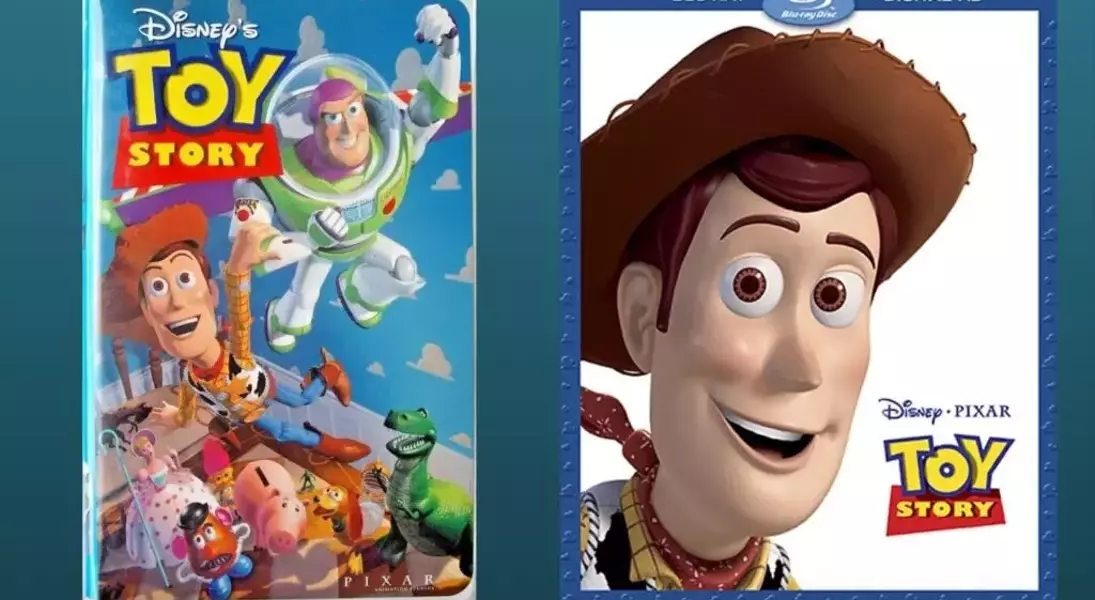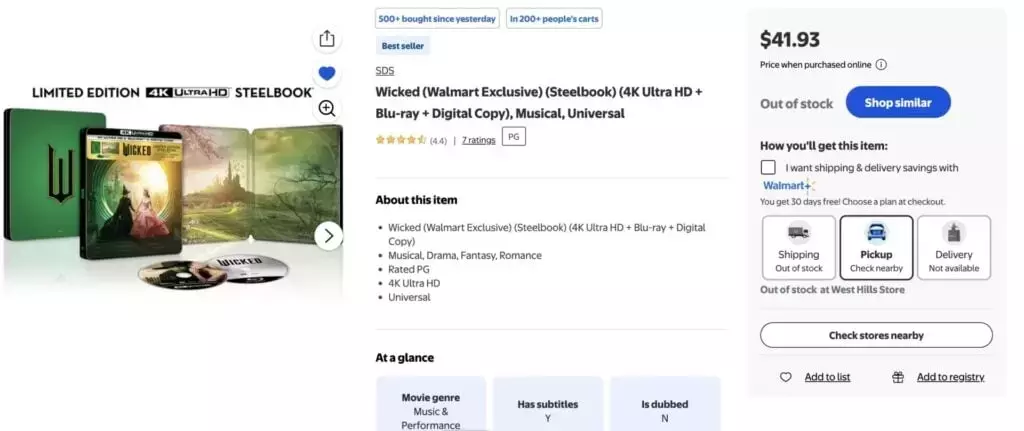



In an era dominated by digital downloads and streaming services, the world of physical media is rapidly shrinking. Major retailers like Best Buy, Target, and Walmart are phasing out their film and music sections, leaving collectors scrambling for limited editions. This shift has not only affected the joy of browsing for movies while running errands but has also made it increasingly difficult to find special releases. The recent case of Walmart’s exclusive Wicked steelbook exemplifies this challenge, as fans faced both online sellouts and in-store unavailability. Moreover, the aesthetic appeal of movie packaging has diminished, with close-ups of characters replacing iconic poster art. As a result, the experience of owning physical media is becoming a distant memory for younger generations.
The decline of physical media aisles represents more than just a change in shopping habits; it symbolizes a cultural shift. Once upon a time, visiting stores to browse for new films was a cherished activity. Retailers like Walmart, which recently released an exclusive steelbook for Wicked, have seen this collector's item vanish almost instantly. Despite being available exclusively through Walmart, the steelbook proved elusive both online and in stores. The confusion surrounding its availability—whether it was truly online-only or could be found on shelves—added to the frustration. The option to search nearby stores yielded no results, and shipping options were unavailable, highlighting the growing scarcity of physical media in both brick-and-mortar and online spaces.
This trend extends beyond just one film or retailer. The design of movie covers has shifted towards featuring large portraits of main characters, particularly in family films and animations. For collectors who value the original poster art, this change is disheartening. Take Pixar’s Toy Story, for example. Instead of the iconic imagery of Buzz and Woody flying over Andy’s room, collectors are left with oversized images of the characters’ faces. While this might appeal to some, many prefer the nostalgic charm of classic poster designs. This issue resonates with parents who want their children to appreciate the beauty of well-crafted physical media, much like they did during their own childhoods.
The loss of physical media sections in stores affects not only collectors but also future generations. Young people today are growing up in a world where digital consumption is the norm, and the act of owning something tangible is becoming rare. The resurgence of interest in physical books at places like Barnes & Noble offers a glimmer of hope. However, similar enthusiasm for physical films remains to be seen. The convenience of digital platforms often overshadows the value of holding a movie in your hands. As we move further into a digital age, preserving the tradition of collecting physical media becomes increasingly important. It’s about creating lasting memories that go beyond a simple click of a button, ensuring that future generations can experience the joy and reverence of owning something special.
